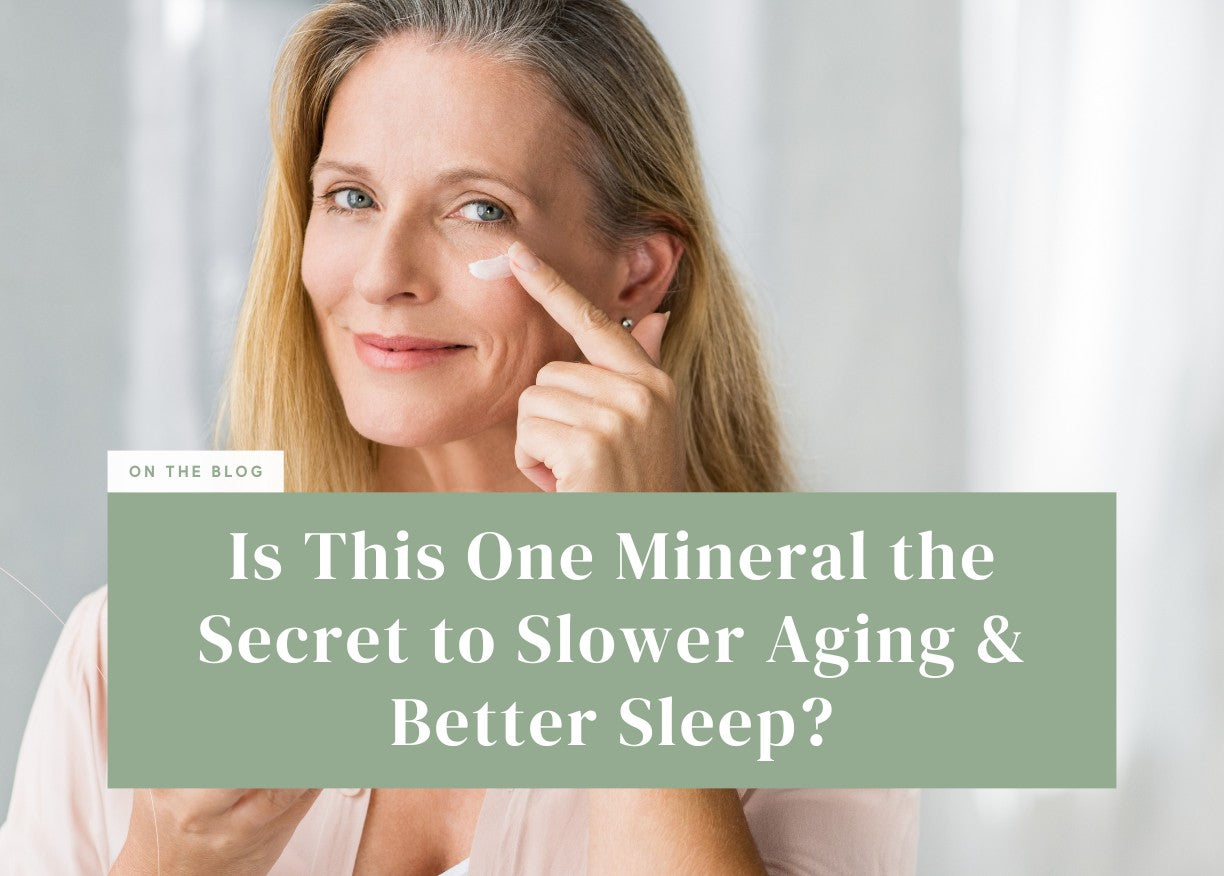Is This One Mineral the Secret to Slower Aging & Better Sleep?
Most people don’t think much about magnesium.
It’s not flashy like collagen or as buzzy as melatonin.
But quietly, behind the scenes, this one mineral affects nearly every major system in your body—especially how well you sleep and how gracefully you age.
So the question is:
Are you getting enough magnesium—and could that be the reason you’re not sleeping (or aging) as well as you’d like?
What Is Magnesium—and Why Should You Care?

Magnesium is involved in over 300 biochemical reactions in the body. It helps regulate:
-
Muscle and nerve function
-
Blood sugar and pressure
-
Energy production
-
Mood and stress response
-
Bone health
-
And—importantly—sleep cycles
But despite its importance, up to 50% of people are deficient in magnesium, especially older adults. (Source: NIH)
How Magnesium Affects Sleep

Magnesium helps regulate neurotransmitters like GABA, which calms the nervous system and prepares your brain for rest. Without enough magnesium, your body may struggle to “turn off,” leading to:
-
Racing thoughts
-
Restless legs
-
Light, fragmented sleep
-
Waking up too early
Studies have shown that magnesium supplements can improve both sleep quality and sleep duration, especially in people with insomnia. (Source: NCBI)
Magnesium and the Aging Process

Here’s where it gets even more interesting: magnesium may also play a role in healthy aging.
It supports:
-
Bone density (critical as we age)
-
Cognitive function
-
Muscle recovery
-
Heart rhythm stability
-
Reduced inflammation, which is linked to almost every age-related disease
One long-term study even found that people with higher magnesium intake had younger biological ages compared to those with lower intake. (Source: Frontiers in Nutrition)
Are You Deficient in Magnesium?

You might be—especially if you:
-
Drink alcohol regularly
-
Eat a processed, low-fiber diet
-
Experience frequent stress
-
Struggle with muscle cramps or restless sleep
-
Are over age 50
How to Increase Magnesium Naturally
✅ Eat More Magnesium-Rich Foods:

-
Dark leafy greens (spinach, kale)
-
Pumpkin seeds
-
Almonds & cashews
-
Black beans
-
Avocados
-
Dark chocolate (yes, really)
✅ Consider a Supplement
Magnesium glycinate or citrate are gentle and effective for sleep support. (Always check with your doctor first.)
✅ Improve Your Sleep Routine
Because even with plenty of magnesium, a bad mattress or overheating sheets can undo everything.
🌿 That’s why Sweet Zzz’s Honey Hybrid Organic Mattress promotes full-body relaxation, pressure relief, and breathability. Paired with our plant-based pillow and cooling bamboo sheets, your sleep environment works with your body to support better rest—and healthy aging.
Final Thoughts: Small Mineral, Big Impact
Magnesium might not get the spotlight, but it plays a starring role in your health behind the scenes.
If you’re not sleeping well, feeling stiff, or aging faster than you’d like, it may be time to look inward—right down to the minerals your body needs.
Because sometimes the smallest things make the biggest difference.








